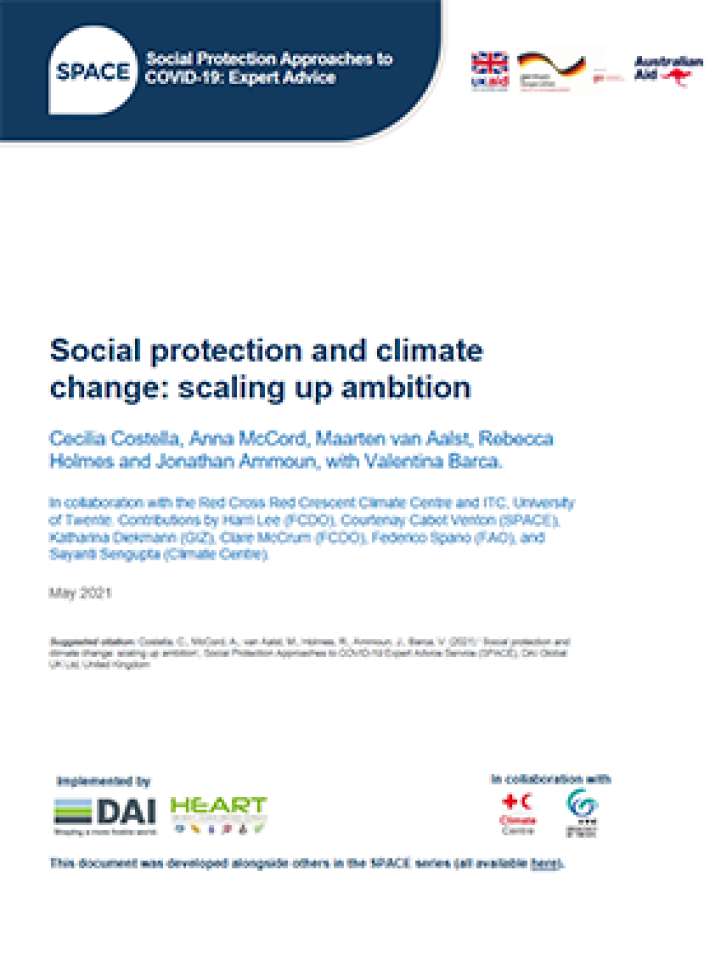The executive summary of "Social Protection and Climate Change: Scaling Up Ambition," notes the critical need to address the social and economic impacts of climate change, especially given that these impacts often degrade future resilience, resulting in a downward spiral of climate impacts and rising vulnerability. Once seen as a long-term environmental issue, climate change is now known as an immediate threat to safety and prosperity, especially for the most vulnerable people that are hit hardest by increasing weather extremes.
As the world battles COVID-19, social protection can serve as a strategic tool for climate risk management and responds to the current calls for climate action and increased resilience. Social protection can play a central role in managing climate risks by addressing chronic poverty, providing temporary support during periods of acute economic and livelihood disruption, and ultimately building resilience and enhancing adaptive capacity to better prepare people for shocks. Once seen as a long-term environmental issue, climate change is now known as an immediate threat to safety and prosperity, especially for the most vulnerable people that are hit hardest by increasing weather extremes.
This paper articulates the role of social protection in addressing major socio-economic challenges arising from climate change and the need to link social protection and national climate change responses. The paper also proposes a comprehensive strategic framework that joins these two agendas, recognizing social protection as a key policy instrument for managing climate change and providing a set of policy and programmatic entry points.
